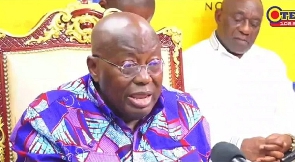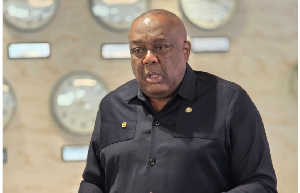Economic turmoil is submerging Ghana under the regime of the New Patriotic Party (NPP). Standard of living is too devastating that people can’t hide their spleens. Necessitating the bad economies are the three economic viruses; the rapid devaluation of the cedi, galamsey, and inflation. Citizens voted against the National Democratic Congress (NDC) due to a mirage of irredeemable corruption. Listening to the aspiring President (Akuffo Addo) then, his economic convictions weren’t convincing enough. But that of his vice, Dr. Mahamudu Bawumia, appeared well-thought and promising. Then citizens got overwhelmed that Ghana would have a crop of leaders that understand law and economics. Six years on, there are seepages and leakages within the legal framework and the economy. However, to sound optimistic, these factors are redeemable: the economy can be resuscitated. What is required is an iron fist of the incumbent President. Times are hard; hard decisions must be taken. His excellency needs to outline pragmatic policies, to steer the affairs of the nation. In the early times of 1966, Singapore was plagued by bad economies. It was a poor third country that imported common drinking water and relied on British forces to defend itself. What shoved them from the third world to first was an austere leadership intertwined with pragmatic policies by its Prime Minister, Lee Kuan Yew. Mr. Yew, in order to kill the snake, held its head and, its long tail became useless. He got the basics right by tackling the root cause of their problems, not just the ‘problem’. For instance, he began by cleaning the city, which includes a ban on littering, and noise nuisance, relocating hawkers and taxis which park on the streets, introducing anti-spitting laws, ban on chewing gums, etc. In an attempt to transform Singapore into a tropical city, Mr. Yew took to growing trees and lawns on the streets. Stray cows and goats that came to feed on the streets, in the main city, whose owners didn’t take responsibility, were taken to the slaughterhouse, and their meats were shared to welfare homes. This stringent policy looked crazy at the start, but soon the citizenry complied and, the city became greener. Emboldening the Corrupt Practices Investigation Bureau (CPIB) served a great purpose. In tackling corruption, Mr. Yew focused on large-scale crimes and white-collar corruptible acts, not only jailing goat thieves. Those ministers who were afoul of the law were punished. And some, like Teh Cheang Wan, Minister for National Development, committed suicide while investigations were underway. The economy of Ghana won’t resurge without the President’s iron fist. He should boldly get hold of the snake’s head and leave its tail. When corruptible acts come to bare, he should allow the law to take its full force, irrespective of the candidature of the minister or political apparatchik in question.  Reshuffle or sack the non-performing ministers. Jail those corruptible ones as Mr. Yew did and later was so proud to have said that they had to lock out people, whether they were communists or religious extremists. If they hadn’t done that Singapore would have been in utter ruins. A ban (for some period) on all forms of mining that are inimical to the environment. Certain parochial individuals mustn’t pollute our sources of water for their interests. The vast majority shouldn’t die for their small gains; our greater good should be paramount. Relating to the speedy devaluation of the cedi, the government should ban the importation of certain products which could be produced locally, to boast local producers. And follow it with the scrapping of nuisance taxes. The President should stand for something, that is daring and remarkable. Something that history would remember him for, and even after his death generations would hope they had been alive during his tenure. Other than that the ‘We know how to bring the economy back but we don’t know how to bring back life’ would just be sweet talk, as the big fish will eat small fish and there won’t be shrimp for the small fish to eat. The conclusion of the whole matter: Citizenry wants their President to be the solution but not the problem.
Opinions of Wednesday, 26 October 2022
Columnist: Abdul Rahman Odoi















